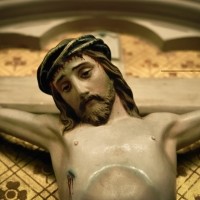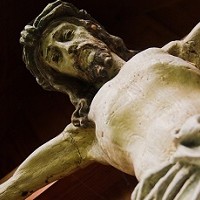Luke 19:41 As he approached Jerusalem and saw the city, he wept over it 42 and said, “If you, even you, had only known on this day what would bring you peace– but now it is hidden from your eyes. 43 The days will come upon you when your enemies will build an embankment against you and encircle you and hem you in on every side. 44 They will dash you to the ground, you and the children within your walls. They will not leave one stone on another, because you did not recognize the time of God’s coming to you.”
It’s easy to see how if Jerusalem was God’s Desired Dwelling Place among His people, it would break the heart of God to know that His own people didn’t want Him or recognize the time of His coming to them. Our peace with God came at the high price of the crucifixion of Jesus, the Son of God.
How did a crowd shouting “Hosanna” quickly turn to shouting “Crucify him”? They wanted a political solution to a spiritual problem.
They sacrificed what would bring true peace because God’s way didn’t measure up politically. They expected a political revolt and a political conquering king, but they would reap what they had sown. Even in the passage above, Jesus outlines what mere political revolt and overthrow accomplish. The crowd wanted a political solution to a spiritual problem…and Jesus wept because He knew that this approach–on its own–would not achieve what they really wanted. They needed a real Messiah.
In our lives, how often do we look for political solutions to spiritual problems?
I used to be a political junkie. I followed all the talk radio programs, watched all the loud arguing talking heads on panel discussion shows, and lived for the news of the day. I called my congressman regularly, wrote letters to the editor, and voiced my views. Then Jesus grabbed hold of me and things changed.
Oh, don’t get me wrong, I still have clear views of things, I watch news and opinion programs, voice my views, and vote. But I’m looking to Jesus to solve the spiritual problem at the root of every political problem.
 Look at this list of today’s major political hand grenades:
Look at this list of today’s major political hand grenades:
• Abortion
• Energy Policy
• Foreign Policy
• Greed
• Hate
• Jobs
• Judicial Policy
• Military Policy
• Race Relations
• Tax Policy
• Welfare Policy
One passage of Scripture radically changed my thinking on this topic of a political solution to a spiritual problem: Matthew 22:16-22. The answer Jesus gave (v 21) was: “Give to Caesar what is Caesar’s, and to God what is God’s.”
Political solutions belong to political problems. Spiritual problems need a more reliable Messiah. If we let Jesus Christ—and the peace He alone brings—be the lens through which we view the major political ideas of our day, we will stop looking for lesser messiahs in the form of our elected officials. We will move beyond political solutions and recognize the time is now! God has made peace for us through Jesus Christ’s coming to us. He will make us His Desired Dwelling Place as we see Jesus as the only solution to the spiritual problem at the root of every political problem.
For further thought:
- How tempting is it to look for political solutions?
- Why do we like political solutions?
- What is the Christian’s obligation regarding faith and politics?








